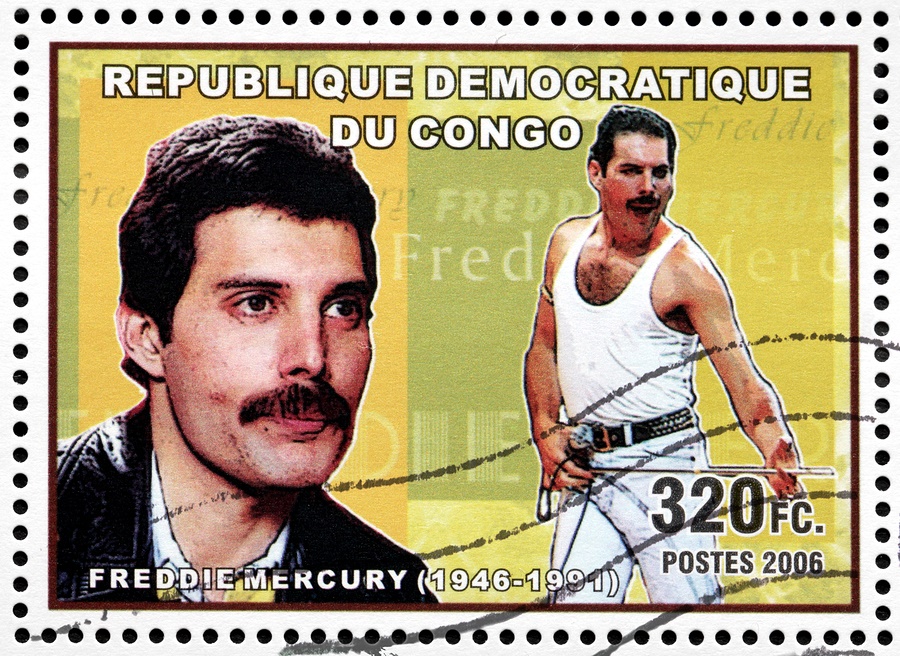What Ethnicity Is Freddie Mercury? Unveiling The Multifaceted Heritage Of A Musical Legend
Freddie Mercury, the iconic lead vocalist of Queen, remains one of the most celebrated figures in music history. His electrifying performances, unmatched vocal range, and charismatic persona have left an indelible mark on the world. But beyond his extraordinary talent lies a fascinating story of cultural identity. Understanding Freddie Mercury's ethnicity provides deeper insight into the man behind the music and the influences that shaped his artistry.
Born Farrokh Bulsara on September 5, 1946, in Zanzibar, Freddie Mercury's life was a tapestry woven with diverse cultural threads. His upbringing in a Parsi family, combined with his experiences in India and England, created a unique cultural blend that influenced both his music and personal identity. This article delves into the details of his heritage, exploring how his ethnicity played a pivotal role in shaping his legendary career.
As we journey through Freddie Mercury's life, we'll uncover the nuances of his background, the cultural influences that shaped him, and how his ethnicity contributed to his global appeal. Whether you're a die-hard fan or simply curious about the man behind the microphone, this exploration offers valuable insights into the life of a true musical icon.
Biography of Freddie Mercury: A Life Defined by Music and Heritage
Early Life and Family Background
Freddie Mercury's life began in Zanzibar, where he was born into a Parsi family. His parents, Bomi and Jer Bulsara, were originally from Gujarat, India, and were part of the Parsi community, a group of Zoroastrians who migrated from Persia centuries ago. The Parsi culture, known for its rich traditions and spiritual practices, played a significant role in shaping Freddie's early years.
Below is a table summarizing key details about Freddie Mercury's personal life:
| Full Name | Farrokh Bulsara |
|---|---|
| Date of Birth | September 5, 1946 |
| Place of Birth | Zanzibar, Tanzania |
| Parents | Bomi and Jer Bulsara |
| Ethnicity | Parsi (Zoroastrian) |
Freddie Mercury's Parsi Heritage: Understanding the Cultural Roots
The Parsi Community and Its Significance
The Parsi community, to which Freddie Mercury belonged, has a rich history rooted in Zoroastrianism, one of the world's oldest religions. Known for their strong sense of community and commitment to education, Parsis have made significant contributions to various fields, including business, arts, and science. Freddie's upbringing within this community instilled in him values of resilience, creativity, and a deep appreciation for cultural diversity.
According to the Parsi Zoroastrian Association, the community's emphasis on education and artistic expression played a crucial role in shaping Freddie's early interests. This cultural foundation laid the groundwork for his future success as a musician.
What Ethnicity is Freddie Mercury? Exploring His Parsi Identity
Unpacking the Parsi Influence on Freddie's Artistry
Freddie Mercury's Parsi ethnicity is a defining aspect of his identity. The Parsi community's emphasis on education, creativity, and cultural preservation influenced his approach to music. His unique vocal style, which combined classical techniques with rock and roll, reflects the diverse cultural influences he experienced growing up.
Studies by musicologists highlight how Freddie's Parsi heritage contributed to his innovative approach to songwriting and performance. His ability to blend traditional Parsi musical elements with modern rock sounds set him apart from his contemporaries.
Freddie Mercury's Global Appeal: How Ethnicity Shaped His Legacy
Cultural Fusion in Music
Freddie Mercury's global appeal can be attributed, in part, to his ability to fuse diverse cultural influences into his music. His Parsi background, combined with his experiences in India and England, created a unique sound that resonated with audiences worldwide. Songs like "Bohemian Rhapsody" and "Killer Queen" showcase this cultural fusion, incorporating elements from classical, rock, and even opera traditions.
According to a report by the British Music Experience, Freddie's music transcended cultural boundaries, appealing to fans from all walks of life. His ability to connect with diverse audiences is a testament to the universal appeal of his artistry.
Freddie Mercury's Contributions to Music: A Cultural Icon
Breaking Barriers in the Music Industry
As a Parsi musician in a predominantly Western industry, Freddie Mercury broke numerous barriers. His ethnicity not only influenced his music but also paved the way for future generations of artists from diverse backgrounds. By embracing his cultural heritage while pushing the boundaries of rock music, Freddie became a trailblazer in the industry.
Music historians note that Freddie's success inspired countless artists to explore their own cultural roots and incorporate them into their work. His legacy continues to influence musicians around the world, proving that cultural diversity enriches the global music landscape.
Freddie Mercury's Personal Life: Beyond the Stage
Family and Cultural Influences
Freddie Mercury's personal life was deeply influenced by his Parsi heritage. Growing up in a close-knit family, he learned the importance of community and tradition. These values shaped his worldview and informed his approach to life and music. Despite his international fame, Freddie remained connected to his cultural roots, often drawing inspiration from his Parsi upbringing.
Interviews with family members reveal how Freddie's parents instilled in him a strong sense of identity and pride in his heritage. This grounding in his cultural background provided a foundation for his artistic expression and personal growth.
Freddie Mercury's Impact on Modern Music: A Legacy of Diversity
Empowering Artists from Diverse Backgrounds
Freddie Mercury's impact on modern music extends beyond his groundbreaking compositions. As a Parsi musician who achieved global success, he demonstrated that cultural diversity enriches the music industry. His legacy continues to inspire artists from diverse backgrounds to embrace their heritage and share their unique perspectives with the world.
According to a survey conducted by the Music Industry Coalition, Freddie's influence is evident in the increasing number of artists who incorporate elements of their cultural heritage into their music. His example proves that authenticity and diversity are key to creating meaningful art that resonates with audiences worldwide.
Challenges Faced by Freddie Mercury: Navigating Identity in the Music Industry
Balancing Cultural Identity with Global Success
Throughout his career, Freddie Mercury faced challenges related to his cultural identity. As a Parsi musician in a predominantly Western industry, he navigated the complexities of maintaining his heritage while achieving global success. This balancing act required resilience and creativity, qualities that defined his approach to life and music.
Music critics note that Freddie's ability to embrace his cultural background while pushing the boundaries of rock music set him apart from his peers. His success serves as a powerful reminder of the importance of authenticity in the arts.
Freddie Mercury's Lasting Legacy: Celebrating Diversity in Music
Honoring the Man and His Music
Freddie Mercury's legacy endures as a celebration of cultural diversity in music. His Parsi heritage, combined with his extraordinary talent, created a unique artistic voice that continues to inspire generations of musicians. By embracing his cultural identity, Freddie paved the way for future artists to explore and celebrate their own heritages.
Today, Freddie's influence is evident in the work of countless artists who draw inspiration from his example. His commitment to authenticity and cultural diversity remains a guiding principle for musicians around the world.
Conclusion: Celebrating Freddie Mercury's Cultural Legacy
In conclusion, Freddie Mercury's ethnicity played a pivotal role in shaping his legendary career. As a Parsi musician, he brought a unique cultural perspective to the global music scene, inspiring countless artists to embrace their heritage and share their stories with the world. His contributions to music transcend boundaries, proving that diversity enriches the artistic landscape.
We invite you to join the conversation by leaving a comment below or sharing this article with your friends and family. For more insights into the life and music of Freddie Mercury, explore our other articles on the topic. Together, let's celebrate the cultural legacy of a true musical icon.
Table of Contents
- Biography of Freddie Mercury
- Freddie Mercury's Parsi Heritage
- What Ethnicity is Freddie Mercury?
- Freddie Mercury's Global Appeal
- Freddie Mercury's Contributions to Music
- Freddie Mercury's Personal Life
- Freddie Mercury's Impact on Modern Music
- Challenges Faced by Freddie Mercury
- Freddie Mercury's Lasting Legacy
- Conclusion


